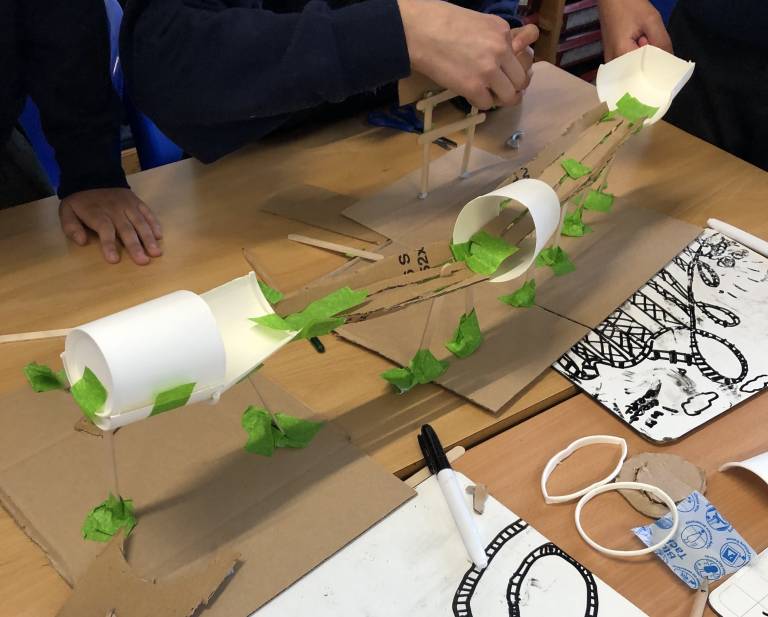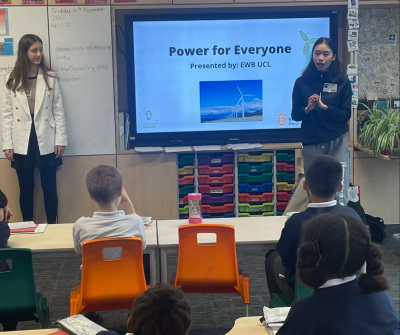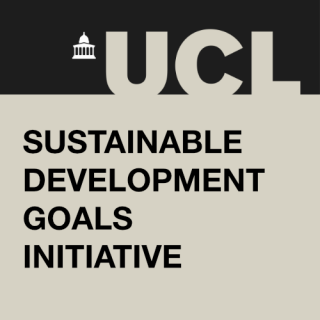Engineers Without Borders Outreach
This outreach project addresses young students in primary and secondary schools and aims to motivate them to consider a career in STEM regardless of their sexuality, race, or socio-economic background

1 September 2022

Engineers Without Borders Outreach is a program where we deliver hands-on sustainable engineering workshops for students in primary and secondary schools all across London, encouraging young people from different backgrounds to choose a career in engineering. This project addresses the need to overcome stereotypes and create a globally responsible and inclusive STEM environment and community as society moves towards the deadline to meet the UN SDGs.
Three different types of workshops were planned and curated to enable students to get a better understanding of 21st century engineering challenges. A hands-on approach in science has been proposed to increase students' academic achievement and understanding of scientific concepts, making abstract knowledge more clear and concise.
1. Design Cycle Workshop:
This workshop focuses on the design cycle and its practical applications. Students learn about the key principles of the design cycle and then apply this knowledge to create a small-scale rollercoaster model using sustainable materials. During the process, they encounter real-world engineering challenges and learn how to overcome them. The workshop aims to introduce students to Engineers Without Borders' goals and visions, emphasizing teamwork and the importance of using minimal materials for their prototypes.
2. Floating Houses Workshop:
In this workshop, students are introduced to a region in Cambodia and tasked with building a structure that can float in water using minimal resources. The objectives include developing students' understanding of how people in other countries live and applying engineering concepts within practical constraints. The workshop also highlights the role of humanitarian engineering, where engineers work to improve the well-being of underserved communities. Students explore fluid mechanics, buoyancy, and water access issues, with a focus on providing clean water in regions surrounded by water.
3. Power for Everyone Workshop:
This workshop delves into global power infrastructure and sustainable power usage. Students build a wind turbine model based on the theory of sustainable power usage. The workshop underscores the vital role of electricity and engineering in ensuring global access to reliable, clean electricity. It addresses issues like climate change and different energy sources, aligning with UN Sustainable Development Goals and the concept of global citizenship. Students design their own wind turbines with limited materials, emphasizing the importance of clean energy and its role in improving lives worldwide.
All workshops are created for both primary and secondary school students with the aim to upskill more than 500 young students to be well-rounded, responsible future engineers who are able to tackle environmental injustice through engineering. The outcome of these sessions is to get students to think creatively about problem-solving with constrained conditions. Their failures are instead celebrated, as the sessions are treated as learning curves to improve their understanding. With this approach, we have the power to rapidly transform our world for the better: to inspire, drive change, and educate.
The project funding allowed comprehensive development of the workshops, further expansion of outreach to more schools across London (which in turn helped to engage with a more diverse range of students), and encouraged more volunteers to participate in the program, which was crucial to successful delivery.
The program aims to inspire the next generation of engineers to commit to global responsibility, driving change through collaboration with local schools to mainstream globally responsible engineering and making the world a better place.
 Close
Close




